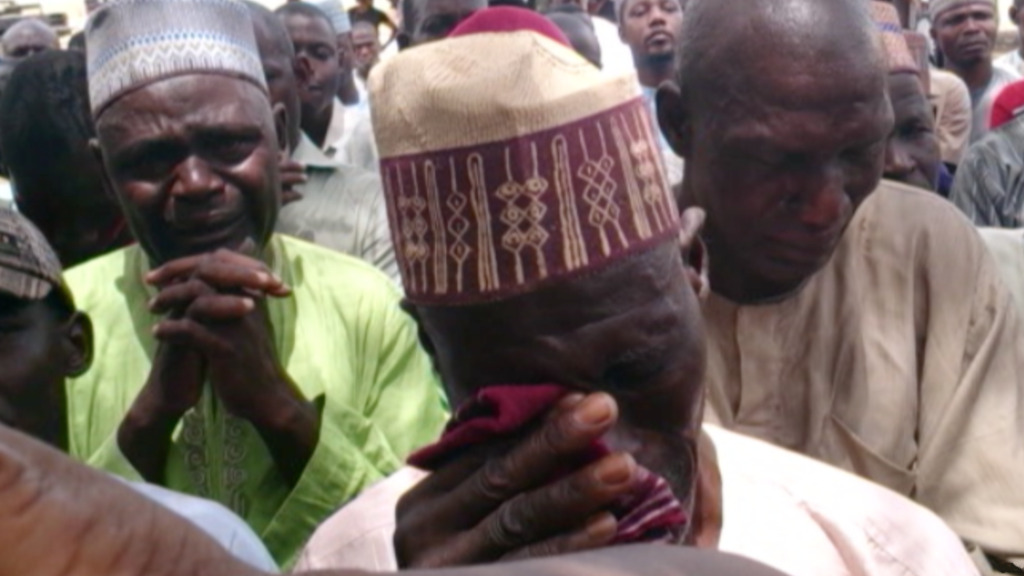
In April, the infamous Islamist terrorist group Boko Haram broke international headlines after kidnapping over 200 Muslim schoolgirls from their dormitories during the night. Now two moths later, only a handful of the girls have managed to escape to safety, and the Nigerian government efforts to recover the remaining hundreds of victims seem to be little more than rhetoric. Nigeria has been in a state of emergency for nearly a year now under President Goodluck Jonathan in response to the group’s campaign of terror. The enduring presence of Boko Haram and this latest outrage is beginning to undermine citizens’ confidence in their government.

Sub-Saharan Africa regularly makes headlines as home to the most extreme poverty, underdevelopment and political strife in the world. It is important to note, however, the substantial role played by extremist terrorist groups in stymieing the region’s stability and development. Consider Boko Haram’s role in the region’s development. The name ‘Boko Haram’, which translates to “Western education is a sin,” reveals precisely how the group hinders progress in Nigeria. An affiliate of al-Qaeda, the group holds an ultimate goal of establishing an Islamist state in Nigeria, and works to achieve it precisely as the group’s name suggests—by targeting Western education as it did a month ago.
This is not the first time Boko Haram has targeted schools. In February, a college killing spree left at least 29 students dead. And in June and July of last year, Boko Haram was responsible for storming two local schools and killing several students and teachers. The violent war on education in Nigeria has cloaked the country in fear, discouraging many students from continuing to attend schools and even prompting the closure of schoolsin desperate attempts to prevent more bloodshed. A country without education is a country without prospect of prosperity. And, as long as Boko Haram is active, Nigeria will not see stability and development.

While it is of no doubt that a major contributing factor of Sub-Saharan Africa’s unproductivity is indeed corrupt governmental practices, the overwhelming influence of terrorist groups like Boko Haram cannot be neglected. It is an undisputed fact that the few countries in the region that are entirely free of such widespread terrorism, although not perfect, are absolutely developing countries rather than deteriorating or stagnant. Consider Tanzania, for example – while the country is by no means invulnerable to terrorist attacks, it is not at all handicapped by fear. In fact, Tanzania is one of the most politically stable countries in Sub-Saharan Africa. Data collected by the European Commission reveals that annual GDP growth levels have been on the rise since 1995. And although poverty levels remain problematic, Tanzania has successfully worked to achieve certain Millennium Development Goal targets, including notable improvements in primary education, infant health and access to clean water. There is no perfect case of a developing country free of flaws; the point to take away from this is that, although slow and steady, Tanzania certainly is continuing to progress towards attaining the status of a developed country, and it is able to do so without the obstacles of political strife and regular terrorist activity.

So how exactly is Nigeria to rid itself of Boko Haram’s terrorist dominance and progress similar to that of Tanzania? Like most terrorist groups, Boko Haram emerged from a weak economy and social marginalization of the Muslim-majority North. While the seemingly obvious solution to the issue may be simply to improve these problems, the remedy is not this simple. Without an educated populous, which will remain impossible as long as Boko Haram roams freely, it is extremely difficult to stabilize a crippling economy. Of course, solving these problems require political reforms—an initiative hopefully undertaken by the new leadership in 2015.
However, political reforms alone will prove to only minimally alleviate terror if Boko Haram remains free to attack. Although the Nigerian militaryhas been pursuing Boko Haram, efforts have proven to be ineffective. The country’s forces could benefit from foreign aid, and this is where the United States comes into the picture. Boko Haram’s terror campaign has much farther-reaching implications than merely hindering development in the country. If the organization continues to enjoy a strong foothold in Nigeria, there will be more opportunity for recruitment and training of Islamist militants. If Boko Haram’s base grows, its power will grow as well. If its power grows, its influence in the country grows, and it will inevitably cross over into the bordering countries of Niger and Cameroon. With ever-expanding power, Boko Haram will also make itself readily available to cooperating with other Islamist terrorist groups in the region to attain pan-Islamist pursuits. And with a stronger base, Boko Haram will begin targeting not only Westerners in the region, but may very well also extend its influence overseas to the United States, as al-Qaeda did on 9/11.
The infinitesimal amount of attention paid by the United States to Sub-Saharan Africa is not only pathetic, but also potentially dangerous. America must provide humanitarian and military aid to struggling countries like Nigeria for, among other reasons, national security. The development of Sub-Saharan Africa is no longer an interest restricted to Africa alone. Boko Haram and the like must be eradicated, progress must be promoted and stability must be maintained throughout the region. Although this will certainly prove to be quite a challenging feat, the West must recognize the international threats posed by Boko Haram in Nigeria and other similar Islamist terror groups in the region, and understand that aid is a promising long-term investment in its own safety.
The views expressed by the author do not necessarily reflect those of the Glimpse from the Globe staff and editorial board.








